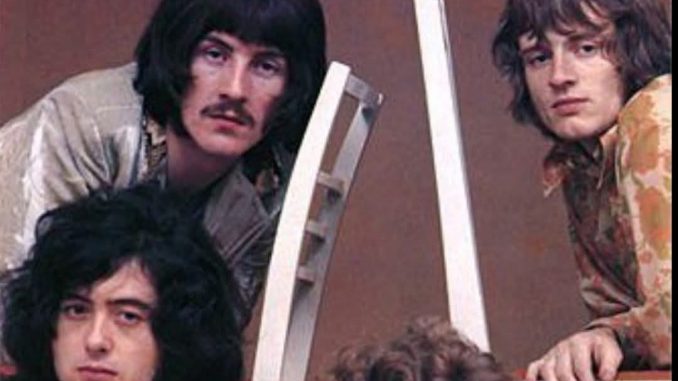
July 18, 2025
In the pantheon of rock gods, one band continues to tower above all others—Led Zeppelin. Born from the embers of The Yardbirds in 1968, the quartet of Jimmy Page, Robert Plant, John Paul Jones, and John Bonham redefined the sound, style, and soul of rock and roll. More than half a century later, their legacy burns brighter than ever, untouched by time and unrivaled in influence.
With a sonic force as fierce as thunder and a mystique cloaked in mythology, Led Zeppelin was more than a band—they were an event. From their debut album Led Zeppelin (1969), they shattered conventions, melding blues, folk, and hard rock into a singular, electrifying experience. The band’s unique ability to blend primal rhythm with ethereal melody turned them into global titans.
Led Zeppelin II, also released in 1969, cemented their dominance with explosive riffs and raw power. Songs like “Whole Lotta Love” and “Heartbreaker” became instant anthems. With Led Zeppelin III (1970), they pulled a sharp left turn, diving into acoustic and folk traditions, proving their range and fearlessness. Yet it was Led Zeppelin IV (1971) that solidified their immortality.
Opening with “Black Dog” and closing with the transcendent “When the Levee Breaks,” the album’s heart lies in the legendary “Stairway to Heaven”—a song that elevated rock into high art. Unreleased as a single, it became the most requested song in FM radio history, a testament to the band’s dedication to the full-album experience.
What set Led Zeppelin apart was not just their studio brilliance but their live performances—unpredictable, massive, and almost spiritual in intensity. From Plant’s banshee wails to Bonham’s thunderous drum solos, every show was an epic. Their concerts were less entertainment and more ritual, binding generations of fans in shared ecstasy.
Physical Graffiti (1975), a double album that spanned every nuance of their sound—from funk-infused swagger to orchestral blues—proved they were still pushing boundaries at the height of their fame. With Presence (1976), Zeppelin leaned into raw power, releasing some of their heaviest material, including the marathon track “Achilles Last Stand.” Their final studio album, In Through the Out Door (1979), revealed a more introspective, keyboard-driven side, with Jones stepping into a larger creative role. It was an evolution, not a departure.
Tragedy struck in 1980 when drummer John Bonham died unexpectedly. The band made the noble decision to disband rather than attempt to replace him. “We could not continue as we were,” the remaining members stated, knowing Bonham’s ferocity behind the kit was irreplaceable. The silence that followed was deafening.
But Zeppelin was never truly gone. Their music endured—passed down through generations, sampled by hip-hop legends, covered by arena rockers, and idolized by millions. In 2007, for one night only, the gods returned to earth. The surviving members, joined by Bonham’s son Jason, performed a reunion concert at London’s O2 Arena. It was a seismic event, hailed as one of the greatest live performances in rock history. Tickets were so coveted that over 20 million people applied to attend.
Now, decades later, Led Zeppelin remains a cultural cornerstone, having sold over 300 million albums worldwide. They were inducted into the Rock and Roll Hall of Fame in 1995, their name etched into the very foundations of music history. Critics, fellow musicians, and fans across continents continue to cite them not just as one of the best, but the best rock band of all time.
While other acts chased fame with flashy singles and commercial formulas, Zeppelin avoided the pop charts, focusing on albums as immersive journeys. Their music was never meant to be background noise—it was a universe to step into, with each track a portal to something raw, mystical, and deeply human.
Even now, “Stairway to Heaven” still haunts the airwaves. “Kashmir” remains a hypnotic testament to their global vision. And “Immigrant Song” surges with Norse fury, forever a battle cry for the young and the restless.
Led Zeppelin were alchemists, turning sound into legend. Jimmy Page’s guitar sorcery, Robert Plant’s wailing soul, John Paul Jones’s quiet genius, and John Bonham’s elemental force—they didn’t just make music. They forged a myth.
Their story is one of creation and destruction, of ascent and loss. But like the phoenix from the ashes, Led Zeppelin endures—reborn every time a needle hits vinyl, every time a speaker blares with that unmistakable, spine-tingling roar.
Led Zeppelin is more than a band. They are an eternal echo in the halls of rock, where the lead bird forever soars above all.
Led #1 Forever.
Let me know if you’d like this adapted for a blog, magazine-style layout, or shortened for social media posts.
Leave a Reply